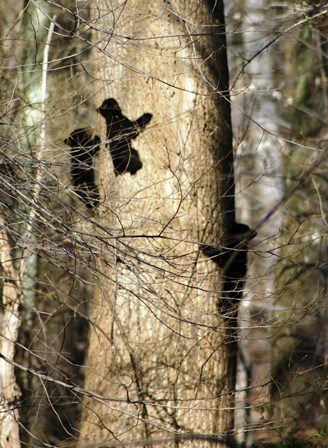
NPS Willfully approaching within 50 yards (150 feet), or any distance that disturbs or displaces a bear, is illegal in the park. Violation of this federal regulation can result in fines and arrest. Use binoculars, telephoto lens, or a spotting scope to view the animals. Warning: Bears are wild animals that are dangerous and unpredictable. Do not feed bears! Do not approach bears or allow them to approach you! All black bears in the park are black in color, but in other parts of the country they may be brown or cinnamon. They may be six feet in length and up to three feet high at the shoulder. During the summer months, a typical male bear weighs approximately 250 pounds while females are generally smaller and weigh less slightly over 100 pounds. However, bears may double their weight by the fall. Bears over 600 pounds have been documented in the park. Wild bears can live 12-15 years or more. "Panhandler" bears, who have had access to human foods and garbage, have a life expectancy of only half that time. Bears, like humans, are omnivores. Plant materials such as berries and nuts make up approximately 85% of their diet. Insects and animal carrion provide valuable sources of protein for bears. Bears have color vision and a keen sense of smell. In addition, they are good tree climbers, can swim very well, and can run 30 miles per hour. Bear Behavior Bears are most active during early morning and late evening hours in spring and summer. Mating usually takes place in July. Both female and male bears may have more than one mate during the summer. Bears choose a denning site with the coming of cold weather. Dens are usually hollow stumps, tree cavities, or wherever there is shelter. Bears do not truly hibernate, but enter long periods of sleep. They may leave the den for short periods if disturbed or during brief warming trends. One to four cubs are born during the mother's winter sleep, usually in January. Bears weigh eight ounces at birth. Females with newly born cubs usually emerge from their winter dens in late March or early April. Commonly born in pairs, the cubs will remain with the mother for about eighteen months or until she mates again. |
Last updated: February 26, 2015
